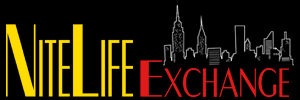
By Marilyn Lester***When the original Birdland opened in December 1949, jazz legend, alto sax player Charlie Parker was the headliner, but then, the club was named after him: “Bird” was his nickname. Fast forward to today, and Parker continues to be honored at the club every year around his August 29 birthday—this year with reed man Ken  Peplowski fronting a 12-piece unit with a truly special Bird with Strings. Excellence reigned in every conceivable direction, from A-list musicians to the set list and the arrangements by legendaries such as John Lewis, Johnny Carisi, Jimmy Carroll and Gerry Mulligan. Add Peplowski especially as host of all this bounty; he’s witty, charming, warm and knowledgeable—all the ingredients to make an audience feel right at home.
Peplowski fronting a 12-piece unit with a truly special Bird with Strings. Excellence reigned in every conceivable direction, from A-list musicians to the set list and the arrangements by legendaries such as John Lewis, Johnny Carisi, Jimmy Carroll and Gerry Mulligan. Add Peplowski especially as host of all this bounty; he’s witty, charming, warm and knowledgeable—all the ingredients to make an audience feel right at home.
As for the honoree, Parker: he’s the cat who invented bebop and turned jazz on its head. But this brilliant musician and innovator died suddenly on March 12, 1955, at age 34. Toward the end of his life he accomplished a wish of recording with strings, and so six ballads mixing jazz players with a chamber music group resulted in a 1949 recording of six tracks of Songbook standards, Bird with Strings. In 1950 another album of eight standards, entitled Charlie Parker with Strings  was released. But wait, there’s more: when Parker died he left behind around 20 fully commissioned and ready-to-go standards that were never recorded. These charts, uncovered by Peplowski, formed the basis of this 2023 outing, using the same basic instrumentation. As per the original sessions, there was also a conductor, in this case, the renowned and impeccable Loren Schoenberg—tenor player, leader, educator, scholar and a founder of the National Jazz Museum in Harlem, among other impressive credits.
was released. But wait, there’s more: when Parker died he left behind around 20 fully commissioned and ready-to-go standards that were never recorded. These charts, uncovered by Peplowski, formed the basis of this 2023 outing, using the same basic instrumentation. As per the original sessions, there was also a conductor, in this case, the renowned and impeccable Loren Schoenberg—tenor player, leader, educator, scholar and a founder of the National Jazz Museum in Harlem, among other impressive credits.
Although the original recordings never used a trumpet, this Bird with Strings had high-note player, Terrell Stafford, on board, who, among many solos, was a powerhouse in a trifecta of tunes: “Gone with the Wind” (Allie Wrubel), “Stardust” (Hoagy Carmichael) and “Ezz-Thetic” (a contrafact of Cole Porter’s “Love for Sale,” written for Bird by George Russell). Duke Ellington’s trumpeter son, Mercer, wrote a luxuriant ballad, “Moon Mist,”  arranged for Parker by Ellington’s copyist, pianist, composer and arranger, Tom Whaley. Stafford’s flawless horn was forward, with a compelling honey-toned oboe feature by Keve Wilson.
arranged for Parker by Ellington’s copyist, pianist, composer and arranger, Tom Whaley. Stafford’s flawless horn was forward, with a compelling honey-toned oboe feature by Keve Wilson.
Peplowski, who also plays tenor sax, is known to be the greatest living clarinetist playing today; he literally set the tone from the opening number, featuring a fox-trot dance rhythm: “When I Dream of You” (Earl Hines). And that tone is unfailingly as smooth as glass and full of the “secret ingredient” of soulfulness. His treasure chest of creative ideas and mastery of technique further seals the deal of excellence. On tenor, Peplowski demonstrated his chops on the fast bop “Move,” Denzil Best’s contrafact of Count Basie’s “Jumpin’ at the Woodside.”
A special moment came with “Yesterdays,” a particularly haunting tune by Jerome Kern. Featuring tradeoffs of melody by Peplowski on clarinet and Wilson, the piece had an especially lush, symphonic feel. The number ended with a harp glissando by the talented Elizabeth Steiner; that coda got attention, not only for Steiner’s deft touch but because harpists, who help anchor a unit, be it a symphony orchestra or small group, are not always in the spotlight. 
It was on the penultimate tune, an evocative and gorgeous rendition of “You Must Believe in Spring” (Michel Legrand), that spotlights shone all around. The song was written in 1967 and therefore is outside of the canon, but before launching into the number, Peplowski urged the audience to check out the Marilyn and Alan Bergman lyric—full of hope and so timely for “today’s crazy world.” In this rendition, Robin Park’s cello provided warmth and depth while Kayla Williams’ viola and the violins of Rose Kow Xiu, Tia Allen and Yoonjung Hwang moved forward for several meaningful bars. The rhythm section of three masters of their instruments—Glenn Zaleski (piano), Peter Washington (bass), Willie Jones III (drums)—demonstrated how their musical function added so much to the success of the Bird with Strings presentation.
The closer, “Repetition” (Neal Hefti) wasn’t on the two Bird/Parker with strings albums,  but was arranged by Hefti for Parker’s legendary Carnegie Hall concert (based on the “strings” albums) in September 1950. With its mambo-based Latin rhythm, evocative of dancers swirling on the Palladium dance floor, the tune was the perfect high-energy note to end an exquisite set of Parker’s music.
but was arranged by Hefti for Parker’s legendary Carnegie Hall concert (based on the “strings” albums) in September 1950. With its mambo-based Latin rhythm, evocative of dancers swirling on the Palladium dance floor, the tune was the perfect high-energy note to end an exquisite set of Parker’s music.
Note: the Peplowski-led band is headed into the studio to record the show. Be on the lookout for the album that results; it will no doubt be a must-have.






